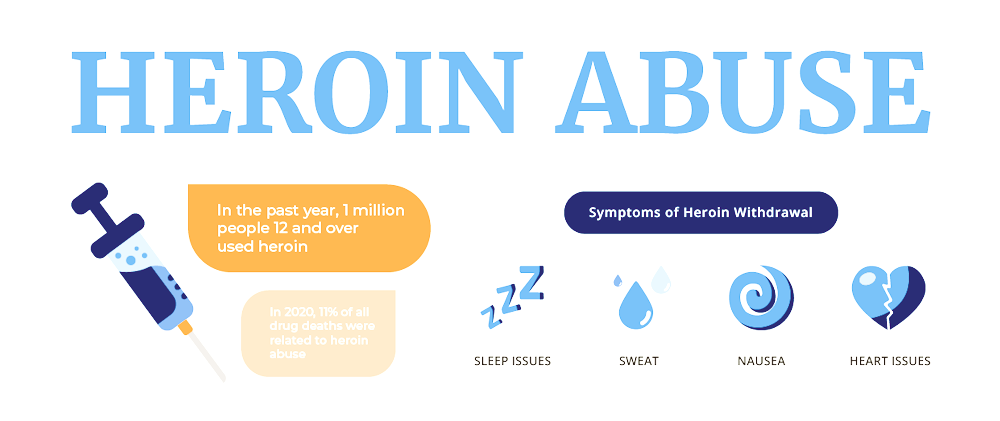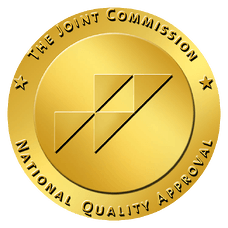Heroin Addiction Treatment and Rehab
Cocaine addiction is a widespread substance use disorder that numerous individuals are keen to address. Learn how professional addiction treatment facilities approach the challenge of cocaine addiction.
Cocaine profoundly alters the brain's chemistry, leading regular users to depend on the drug for sensations of pleasure and excitement. Initially perceived as casual use, cocaine consumption can quickly escalate to addiction and reliance. In the worst-case scenario, this could result in a fatal overdose. While prompt treatment for a cocaine overdose can save lives, not everyone is fortunate in such circumstances. If you or a loved one is grappling with a cocaine-related substance use disorder, seeking out cocaine rehab is imperative.
While cocaine addiction treatment yields significant benefits for many, locating the appropriate care can present hurdles. Deciding on the necessity of cocaine overdose treatment, establishing the required levels of care, and managing insurance coverage can be daunting tasks. Fortunately, Wildcat Recovery is available to offer guidance. Here, you will discover resources that link you to the needed care, initiating your path to recovery.
Complete the pre-screen form below to initiate the admission process. Our admissions team will contact you shortly.
How is Heroin Addiction Treated?
- At the start, the delightful impact of heroin use is undeniable. Over time, however, the pleasure fades and individuals seek heroin to ease withdrawal symptoms. Overcoming heroin addiction is a demanding journey that often necessitates rehabilitation for successful recovery. The initial phase of rehab can be characterized by severe discomfort from withdrawal symptoms, which can contribute to continued drug use.
- After detox, symptoms may lessen but could persist for months or even years. Comprehensive treatments are crucial for managing side effects and cravings:
- Pharmacological Treatments: Medically prescribed medications are used to manage withdrawal symptoms and address Opioid Use Disorder (OUD) symptoms.
- Behavioral Therapy: Common forms include Cognitive Behavioral Therapy (CBT) and Contingency Management (CM). CBT aims to change expectations and behaviors associated with drug use, similar to traditional therapy. Less widespread, CM utilizes a voucher system to reward individuals with items or prizes based on clean drug screens.
- Combination Therapy: This approach combines pharmacological and behavioral therapy methods. For most individuals, a blend of these therapies is needed to support recovery.

Types of Rehabilitation for Heroin Addiction
There are three primary options for treating heroin addiction: inpatient, outpatient, residential, and rehab
Inpatient Rehabilitation for Heroin Addiction
Inpatient rehabilitation occurs in a facility where individuals live and receive heroin detoxification and withdrawal treatment. Skilled medical professionals offer continuous round-the-clock medical and therapy services, with the patient's schedule tailored to aid in the recovery process.
Inpatient rehabilitation addresses all aspects of individuals' lives as they recover from addiction. This type of rehab may include:
- Nutrient-rich diet: Deliberately curated meals are designed to replenish the nutrients lacking in the regular diet of individuals battling addiction, while averting weight gain commonly seen in heroin recovery.
- Cultivating positive habits: Besides advocating for healthy eating, rehab encourages the development of fresh habits like exercise, hobbies, and leisure pursuits. Engaging in these activities helps to fill the void left by drug-related social interactions and reduces the likelihood of setbacks.
- Supportive community: Comrades in rehab offer empathetic understanding and social reinforcement throughout the recovery process.
- Establishing healthy boundaries: Opioid use disorder often blurs boundaries; rehab assists in establishing healthy boundaries and providing individuals with strategies to uphold them after treatment.
- Medical assistance: Trained medical personnel are available to manage and treat life-threatening detox risks.
- Removing harmful influences: The social circles maintained during drug use can significantly impact addiction. Therefore, separating from such influences is vital for successful treatment.
- Structured setting: Inpatient rehab provides a structured daily and weekly regimen that supports individuals along their journey to recovery.
Outpatient Rehabilitation for Heroin Addiction
Outpatient treatment thrives on a profound bond between the patient and the healthcare provider. It is usually suggested by healthcare professionals who have a deep understanding of the patient. Outpatient rehabilitation involves the use of pharmacological and behavioral interventions, either separately or in tandem. Speak with your doctor to ascertain if outpatient treatment is a suitable option for yourself or your loved one.
Residential Rehabilitation for Heroin Addiction
Residential rehabilitation combines elements from both inpatient and outpatient programs. Participants live in a facility with access to medical and psychological support, yet can leave to fulfill work, school, or other commitments. This treatment option allows individuals to create distance from negative influences that contribute to substance abuse, all while addressing their responsibilities.
Dual Diagnosis Treatments
People with a dual diagnosis have both a mental health condition and a substance use disorder (SUD) at the same time. This co-occurring presentation requires a specialized treatment approach because of its higher level of complexity than single diagnoses. While a mental health problem can sometimes lead to SUD, there are cases where SUD can cause mental health issues.
Types of Therapies to Expect During Rehabilitation
Therapists apply different therapy approaches tailored to their skills and the individual requirements of each patient. While Cognitive Behavioral Therapy (CBT) is the most popular therapy method, alternative therapies may also be provided during rehabilitation, such as:
- 12-step facilitation therapy
- Cognitive behavioral therapy (CBT)
- Community reinforcement approach (CRA)
- Contingency management (CM)
- Family behavior therapy (FBT)
- Motivational enhancement therapy (MET)
- Rational emotive behavioral therapy (REBT)
- Group Therapy
- Individual Therapy
Group Therapy
Group therapy consists of a therapist and several participants. Popular techniques employed in group therapy encompass Cognitive Behavioral Therapy (CBT) and Rational Emotive Behavior Therapy (REBT). Within this environment, the therapist kickstarts conversations with a positive reinforcement, fostering dynamic engagement from all members. Group therapy has the potential to enhance self-assurance in social situations, offering a productive space for dealing with heroin addiction.
Individual Therapy
Personalized therapy is especially advantageous for individuals in need of a customized approach or dealing with one-of-a-kind situations. Private therapy sessions are available for those grappling with intense anxiety in social environments.
Drugs Used in Heroin Rehab
In the early stages of rehabilitation, individuals go through detoxification, where they may encounter withdrawal symptoms. Detoxification involves the body purging the drug, and, because heroin is rapidly metabolized, detoxification could finish even prior to rehab commencing.
Following soon after, or even concurrently with detoxification, withdrawal symptoms may arise. Various treatment methods in rehabilitation concentrate on easing these symptoms. Specific medications employed in treating heroin addiction include:
- Cravings: Clonidine is prescribed to address cravings for opioids and heroin.
- Diarrhea: Loperamide is the primary medication for managing diarrhea, with alternative options considered if loperamide proves ineffective.
- Nausea/Vomiting: Ondansetron helps prevent nausea, while promethazine is used to treat nausea following vomiting.
- Pain: Non-opioid medications like acetaminophen, ibuprofen, and naproxen can assist in pain management.
Following the dwindling of initial withdrawal symptoms, physicians may recommend medications to address Opioid Use Disorder. These treatments help reduce cravings and withdrawal symptoms post-detoxification.
- Buprenorphine: Operating by stimulating opioid receptors to ease withdrawal symptoms and hindering the effects of heroin, buprenorphine reduces the euphoric sensation derived from heroin use.
- Methadone: Resembling heroin, methadone prompts opioid receptors but results in a milder euphoric feeling. With a slow release in the body, methadone provides an extended period of action lasting up to five days, contrasting the brief 30-minute effect of heroin.
- Naltrexone: By completely blocking opioid receptors, naltrexone prevents individuals from experiencing the high associated with heroin use.
How Long Does Heroin Rehab Last?
The length of rehabilitation differs for every person, spanning from one week to several months, depending on how the addiction responds to treatment. Extended stays are often required for longer addictions and more severe withdrawal symptoms.
Continued Healing for Heroin Dependency
A successful rehabilitation center provides continued support within the community, potentially as a component of a comprehensive health system offering outpatient services. Alternatively, they might partner with other outpatient treatment centers and healthcare professionals.
Treatment for heroin addiction doesn't conclude upon leaving rehab. It is a lifelong journey, and follow-up care is vital for sustained progress.

